FIRST INTERNATIONAL CONFERENCE - Promoting Decent Work and Decent Lives for All
First International Conference:
Promoting Decent Work and Decent Lives for All
University of Florence, August 28-29, 2020



| PRESIDENTS OF THE CONFERENCE | |

|
Annamaria Di FabioAnnamaria Di Fabio, Ph.D. is Full professor of Work and Organizational Psychology at the Department of Education, Languages, Intercultures, Literatures and Psychology (Psychology Section) of the University of Florence (Italy). She is also Director of both the following International Research and Intervention Laboratories: Cross-Cultural Positive Psychology, Prevention, and Sustainability; Work and Organizational Psychology for Vocational Guidance, Career Counseling, Talents and Healthy Organizations. Her principal research areas are focused on work and organizational psychology, decent work/decent lives, psychology of harmonization, emotional intelligence, psychology of individual differences, positive preventive psychology in a primary and cross-cultural perspective, also promoting the new area of the psychology of sustainability and sustainable development. She is author of more than 200 peer reviewed articles and books/book chapters and responsible for many editorial book series and scientific journals. She was invited in many international scientific conferences both as keynote speaker and as chair and discussant. She has international agreements and collaborations for research activities with many universities and institutions all over the world (USA, Canada, Australia, New Zealand, South Africa, Japan, Malaysia, South Korea, Indonesia, China, Vietnam, Bangladesh, India, and Europe). She organized several International Conferences at the University of Florence (Italy) on many different topics, particularly committed to advancing a cross-cultural perspective for healthier societies fostering healthy organizations, psychology of sustainability and sustainable development, decent work and decent lives in strength-based prevention perspectives. |
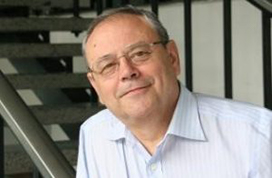
|
José Maria PeiróPhD University of Valencia, 1977. Professor of Work and Organizational Psychology and Researcher of the Institute of Human Resources Psychology (IDOCAL) at the University of Valencia and also of the Ivie (Valencian Research Institute of Economics) Member of the Spanish Academy of Psychology. His research focuses mainly on occupational stress and wellbeing at the individual and collective levels. He also studies team and organizational climate and culture and work socialization processes as well as youth labor market entry, unemployment, employability and over qualification and professional competencies. He has published about 200 articles and book chapters and several books and monographs. Associate Editor of the European Journal of Work and Organizational Psychology (1995-2001). He has received the Aristotle 2015 Award from EFPA, the Advanced International Research and Service Award by the International Council of Psychologists (2013), the Life time award of the European Association of Work and Organizational Psychology (2013) and the ‘José L. Pinillos award to the excellence and Innovation in Psychology’ (2016) by Psicofundación (Spain). He has received the Honorary doctorate from the University of Mastricht (2020), University Miguel Hernandez (Elx) and Univerity Methodista of Sao Paulo (Brasil). |
| CO-PRESIDENTS OF THE CONFERENCE AND INVITED KEYNOTE SPEAKERS |
|
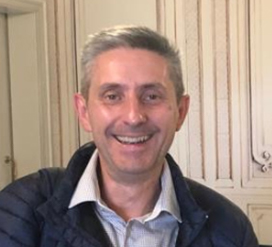 |
Jean-Luc BernaudJean-Luc Bernaud is Professor of Counseling Psychology and Vocational Guidance at the CNAM-INETOP (National Institute of Work Study and Vocational Guidance, Paris). He was Visiting Professor and has initiated collaborations with Germany, Belgium, Canada, Cameroun, Danemark, India, Italy, Moldova, Switzerland, and Togo. He is also associate editor of the international review "Psychologie du Travail et des Organisations" and president of the French Association of Existential Psychology. His research focuses on the effects of methods and processes in career counseling, life meaning and work meaning, existential psychology in the workplace. He has published 149 articles, books, and chapters on these topics. |
 |
Stuart CarrStuart C. Carr is Professor of Psychology, Industrial and Organizational (I/O) Psychology Program, Massey University, New Zealand. Stuart co-facilitates the End Poverty and Inequality Cluster (EPIC), which includes a focus on transitions from precarious labor to decent work and living wages. Intersecting with EPIC is Project G.L.O.W. (for Global Living Organizational Wage), a multi-country, multi-generational, interdisciplinary study of the links between decent wages (in purchasing power parity), and sustainable livelihoods for the eradication of poverty – the primary UN Sustainable Development Goal (SDG1). Stuart’s professional focus is Humanitarian Work Psychology, which has included a Global Task Force for Humanitarian Work Psychology, promoting Decent Work aligned with local stakeholder needs, in partnership with global development agencies. He was a lead investigator on Project ADDUP, a multi-country DFID/ESRC-funded study of pay and remuneration diversity between national and international labor in developing economies. Stuart is a Fellow of the Royal Society of New Zealand (RSNZ), the Society for Industrial and Organizational Psychology (SIOP), and the New Zealand Psychological Society (NZPS). He is the coordinating Principal Investigator for a RSNZ Marsden Grant awarded to the New Zealand hubs in GLOW (2018). He is a previous Editor of the Journal of Pacific Rim Psychology, and presently Edits International Perspectives in Psychology: Research, Practice, Consultation, which supports the SDGs. |
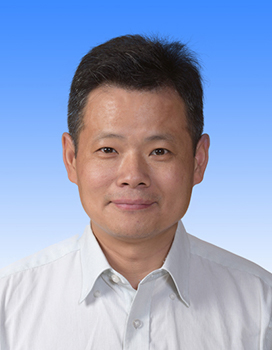 |
Buxin HanBuxin Han is professor of psychology at the Institute of Psychology, Chinese Academy of Sciences (IPCAS), Beijing, China. He received his doctorate in Psychology (IPCAS, 1993), research on the psychology of ageing, cultural psychology of religion, and color perception. He has published over 200 scientific articles in journals in either English or Chinese, and is on the editorial boards of several Chinese Journals. He was elected as a member of the Board of Directors (BoD, 2006-2014) and Secretary-General (S-G, 2014-2018) of the International Association of Applied Psychology (IAAP), BoD member (2005-2019), President-Elect (2019-2022) of and IAAP liaison (2006-2018) to the APsyA. He was appointed as IAAP liaison to and worked very hard to the great success of the 1st South East Asian Regional Conference of Psychology (RCP2107, November 28- December 1, Hanoi). His contributions for these important events were highly recognized and hence he received the Distinguished Award issued by the International Union of Psychological Science (2004), China Associations of Science and Technology (CAST, 2006), and the IAAP (2018). He is active in Chinese and International academic organizations. He has organized annual Sino-American Bilateral Conference on Cultural psychology of Religion since 2007; chairing the annual International Workshop for Young Psychologists in Frontiers of Psychology, which was supported by the CAS, since 2018. |
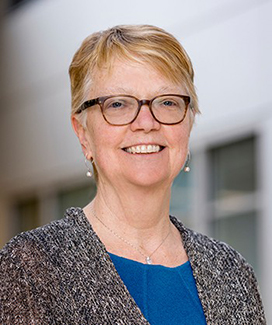 |
Maureen E. KennyMaureen E. Kenny, PhD, is interested in enhancing ways to cultivate academic, career and socioemotional development among children, adolescents, and families. She seeks these answers by examining the individual and contextual factors that promote positive growth and studying how to prepare individuals and systems to adaptively manage shifts in technology, globalization, and workforce opportunities. Her expertise includes the design and evaluation of school and community-based interventions, with a focus on marginalized youth and the promotion of student motivation, career adaptability and well-being. She joined the Lynch School in 1988. She served as Dean from 2013–2016, as Interim Dean from 2011–2013, as Associate Dean of Faculty and Academic Affairs from 2007–2011, and as chair of the CDEP department from 1997–2000. An author of dozens of publications, she has delivered more than 100 presentations at national and international conferences. She served on the editorial boards of the Journal of Counseling Psychology and the new American Psychological Association journal, the Journal of Health Promotion and Prevention. In 2009, she received the Lifetime Achievement Award in Prevention from the American Psychological Association’s Society for Counseling Psychology. |
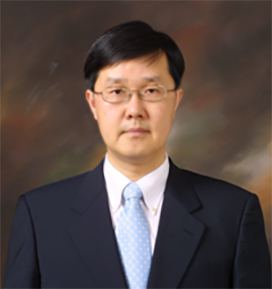 |
Uichol KimUichol Kim, Ph.D., Professor, College of Business Administration, Inha University, Korea. He has previously taught at the Department of Psychology, Chung-Ang University, University of Tokyo, Japan and University of Hawaii at Manoa, USA. He was a visiting professor at Stanford University, University, Xiamen University, China, University of Konstanz, Germany and University of Bergen, Norway. He has conducted research in indigenous and cultural psychology, focusing on family and parent-child relationship, education attainment and school violence, health and quality of life, democracy, and human rights and political culture. In management, his research focuses on leadership, organizational culture and sustainability, focusing on creativity, innovation and entrepreneurship. He has published over 200 articles and 20 books and provided lecture/consulting for companies/governmental agencies headquartered in the USA (Pfizer, Stryker Corporation; Department of Health, State of Hawaii), Canada (Canadian International Development Agency), France (La Poste, MAPI Institute), Germany (BASF), Thailand (PTT), Japan (Toyota Home), Indonesia (Ciputra Group) and Korea (LG Group, Samsung Life Insurance, Halla Group and Dongsung Corporation). |
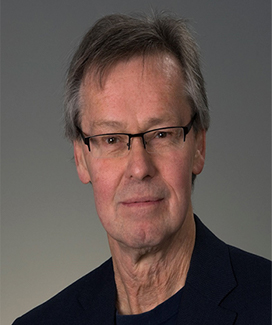 |
Donald H. SaklofskeHe joined the Psychology Department at the University of Western Ontario five years ago. Previously, he was a Full Professor in Applied Psychology and Associate Dean Research (Faculty of Education) at the University of Calgary. He is currently an Adjunct Professor at the University of Calgary as well as the Department of Educational Psychology, University of Saskatchewan, Visiting Professor in the School of Psychology at Beijing Normal University, and a Research Member in the International Laboratory for Research and Intervention in Cross-Cultural Positive Psychology, Prevention, and Sustainability (CroCPosPsychP&S), University of Florence, Italy. Editorships include: Personality and Individual Differences, Journal of Psychoeducational Assessment and until recently, the Canadian Journal of School Psychology. He is also Editor for the Human Exceptionality book series published by Springer. He has published 35 edited and authored books (4 in press) and more than 100 book chapters and 200 journal articles. Don is a Fellow of the Canadian Psychological Association, Association for Psychological Science, and Society for Personality and Social Psychology. He recently served on the Board of Directors and as President of the International Society for the Study of Individual Differences and the Board of the Canadian Psychological Association. He has a long standing interest in the martial arts and earned a black belt (sandan) in Shito-Ryu karate. |
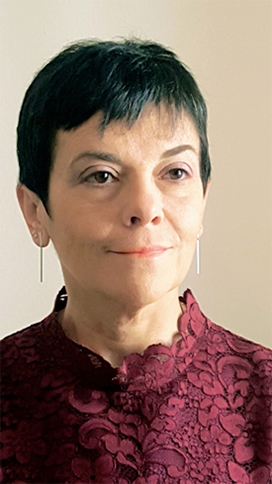 |
Gabriela Topa CantisanoGabriela Topa is an associate professor of social and organizational psychology at the National Distance Education University (UNED). She has been recently positively evaluated for the position of Full Professor. She obtained her Ph.D. in 2004. Her doctoral dissertation focused on Psychological contract breach among Spanish professional soldiers. Her current research is devoted to retirement, bridge employment, and financial planning for retirement. She has developed both empirical and meta-analytical research. Her work has been published in Journal of Vocational Behavior, Journal of Neuroscience, Psychology and Economics, European Journal of Work and Organizational Psychology, Journal of Aging and Health, Personality and Individual Differences, PlosONE, and Voluntas, among others. She is Associate Editor of Frontiers in Psychology, Organizational Section, BMC Public Health, Cogent Psychology and Psychology Research and Applications. Her recent research activities are mainly focused on the new research area of Psychology of sustainability and sustainable development. Outcomes of these activities are they recent publications in Sustainability, Internationa Journal of Environmental Research and Public Health, among other Journals. |
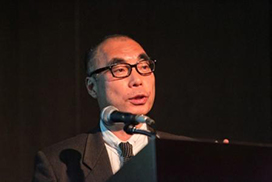 |
Akira TsudaAkira Tsuda has been a Kurume University professor since 1992. He continues teaching and studying efforts on indigenous and cultural psychological aspects of stress, health and well-being from the point of view of a biopsychosocial approach. He has been given numerous awards and honors as a researcher and service to the profession. He has been president of the meeting of Japanese Psychological Association 2018, was organized many conferences and annual meetings such as the Japanese Behavioral Society, Japanese Association of Health Promotion, Japanese Society of Stress Management etc., and has been given a dozen executive members of scientific committee in Japan. He has published more 200 professional publications and 50 book chapter papers. His latest passion is helping to create effective stress management intervention program for space exploration innovation. |
| INVITED KEYNOTE SPEAKERS | |
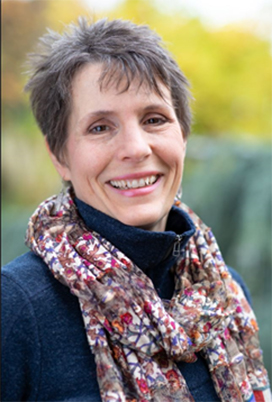 |
Lynette H. BikosLynette H. Bikos, PhD, ABPP, engages in research that falls at the intersections of vocational, international, and sustainable psychology. She is particularly interested in understanding how individuals respond to change -- plotting longitudinal growth trajectories examining the simultaneous effects of individual and contextual factors. Significant research projects have explored global learning outcomes in returnees from study abroad, first year adaptation of expatriate spouses, and career development in response to a calling-infused career intervention. Lynette joined the Department of Clinical Psychology at Seattle Pacific University in 2005. She has served as Associate Dean in the School of Psychology, Family, and Community since 2013. As Professor and Director of Research, she teaches statistics, research methods, and psychometrics courses to students enrolled in the Clinical (APA Accredited) and Industrial/Organizational PhD programs. She presently serves on the editorial boards of the Journal of Vocational Development, Career Development Quarterly, and International Perspectives in Psychology: Research, Practice, Consultation; and has previously served on the Journal of Counseling Psychology and Journal of Career Development editorial boards. Lynette is board certified in Counseling Psychology and is a Fellow in the Western Psychological Association. She is currently holding a 3-year term as Vice President for Engagement in APA’s Division 52/International Psychology. |
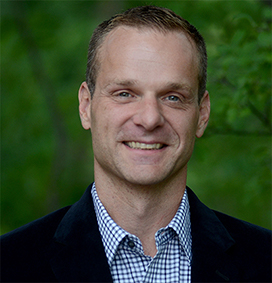 |
Matthew A. DiemerMatthew A. Diemer is a developmental psychologist who examines how young people analyze, negotiate, and challenge racial, ethnic, socioeconomic and other constraints in school, college, work, and civic/political institutions. He is particularly interested in how marginalized people develop critical consciousness, which is a careful analysis of societal inequalities, the motivation to produce social change, and participation in social or political action to challenge inequality. His recent work validates a critical consciousness scale and examines how family wealth contributes to intergenerational success. His research is currently funded by grants from the Institute for Education Sciences, National Institute of Health, the National Science Foundation, and the William T. Grant Foundation. Diemer is the recipient of awards such as the Ohana Award from the American Counseling Association (2006), the Early Career Award from the Society for Vocational Psychology (2009), the Spencer Foundation/National Academy of Education Fellowship (2011), and the Emerging Leadership from the Committee on Socioeconomic Status (2019, American Psychological Association). He received his PhD from Boston College. |
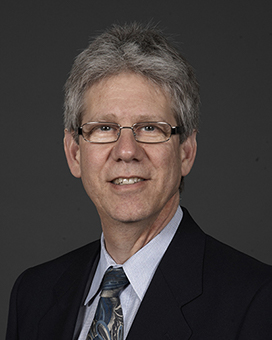 |
Marc A. RosenMarc A. Rosen, Ph.D., is a Professor at University of Ontario Institute of Technology in Oshawa, Canada, where he served as founding Dean of the Faculty of Engineering and Applied Science. Dr. Rosen has served as President of the Engineering Institute of Canada and of the Canadian Society for Mechanical Engineering. He has acted in many professional capacities, including Editor-in-Chief of various journals and a Director of Oshawa Power and Utilities Corporation. With over 70 research grants and contracts and 900 technical publications, Dr. Rosen is an active teacher and researcher in sustainable energy, sustainability, and environmental impact. Much of his research has been carried out for industry. Dr. Rosen has worked for such organizations as Imatra Power Company in Finland, Argonne National Laboratory near Chicago, the Institute for Hydrogen Systems near Toronto, and Ryerson University in Toronto, where he served as Chair the Department of Mechanical, Aerospace and Industrial Engineering. Dr. Rosen has received numerous awards and honours, and is a Fellow of numerous societies. |
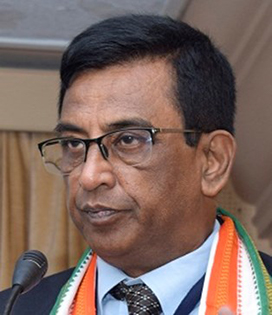 |
Board Member of International Association of Applied Psychology (IAAP), Professor Dr Anwarul Hasan Sufi is the Director of the Mental Health Center of Rajshahi University and former Chairman of Rajshahi University Psychology Department. He started his teaching career as a Lecturer in the Department of Psychology of Rajshahi University in 1981 and became Full Professor in 1999. He obtained his Ph.D. degree from Rajshahi University in 1992 on ‘Psycho-bio-social factors of mental retardation in Bangladesh’ and did Post Doctoral in Manchester University in 1994 on ‘aging of the mentally handicapped persons’. As one of the pioneer researchers in the field of developmental disabilities, he studied the problems and prospects of handicapped persons in many countries of Asia, Europe and America since 1982. He served as the First Director of Bangladesh National Institute for the Mentally Retarded during 1988- 1990. He is the founder of the SIVUS Institute Bangladesh which is providing volunteer professional service to a large portion of mentally handicapped persons in Bangladesh. Former Secretary General of Bangladesh Psychological Association, Professor Sufi authored, edited and reviewed many books and journals available in Google, Research Gate and other search engines. He pioneered to collaborate in many International and National joint research programs. He is consultant of some agencies working in Bangladesh and neighboring countries to uplift the life of the people in the region. |
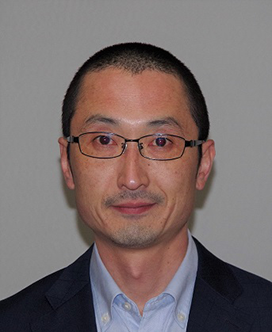 |
Yoshiyuki TanakaYoshiyuki Tanaka is an Associate Professor in the department of Psychology at Kyoto Tachibana University. His address health psychology and clinical psychology. He is interested in the power of positive side of humanity, and his research focuses on the subjective well-being, stress, health, and those relationships. His expertise includes the stress-management intervention that depend on ones' respective well-being. He has been recently studying about the difference and similarity of aspects of and a role of subjective well-being between Westerners and Japanese (Easterners). He has been supported by JSPS KAKENHI (the Grant-in-Aid for Scientific Research by Japan Society for the Promotion of Science), and several Grants for research from companies. He joined the Kyoto Tachibana University in 2012. He has delivered more than 50 publications and 100 presentations at national and international conferences. He is currently a member of the board of directors/councilors of Japanese Psychological Association, Japanese Association of Health Psychology, Japanese Society of Stress Management, Japanese Association of Stress Science, Japanese Society of Behavioral Medicine, and so on. He served as Chief Secretariat of Japanese Association of Behavioral Science from 2012-2016, as vice-chairperson of the Committee for International Relations (2015-present) and the Committee for Journal Edition (2019-present) at Japanese Association of Health Psychology. |
PRESIDENTS OF THE SCIENTIFIC AWARDS COMMITTEE
Maureen E. Kenny – Boston College (USA)
SCIENTIFIC COMMITTEE
Dinah Alexander, University of the Witwatersrand (South Africa); Frederik Anseel, King’s College London (UK); Giulio Arcangeli, University of Florence (Florence); Caroline Arnoux-Nicolas, University of Paris Nanterre (France); Neal Ashkanasy, University of Queensland (Australia); Kelsey L. Autin, University of Wisconsin-Milwaukee (USA); Samia Ben Youssef Mnif University of Tunis (Tunisia); Jean-Luc Bernaud, INETOP-CNAM (France); Pablo Fernandez-Berrocal, University of Malaga (Spain); Lynette H. Bikos, Seattle Pacific University (USA); David Blustein, Boston College (USA); Laura Borgogni, Sapienza University of Rome (Italy); Richard E. Boyatzis, Case Western Reserve University (USA); Stuart Carr, Massey University (New Zealand); Fanny Cheung, The Chinese University of Hong Kong (China); Rita Chiesa, University of Bologna (Italy); Saths Cooper, University of Pretoria (South Africa); Claudio Cortese, University of Turin (Italy); Serena Cubico, University of Verona (Italy); Sílvia da Silva, ISCTE-Instituto Universitário de Lisboa (Portugal); Jesus Enrique De La Fuente, University of Almería (Spain); Marco Depolo, University of Bologna (Italy); Matthew A. Diemer, University of Michigan (USA); Annamaria Di Fabio, University of Florence (Italy); Santo Di Nuovo, University of Catania (Italy); Elisabeth Doutre, Université Grenoble Alpes (France); Ryan D. Duffy, University of Florida (USA); Emre Er, Yıldız Teknik University (Turkey); Natalio Extremera, University of Málaga (Spain); Geneviève Fournier, Laval University, Québec (Canada); Márta Fülöp, Eötvös Loránd University (Budapest); Cristina García-Ael, UNED, Madrid (Spain); Itamar Gati, The Hebrew University of Jerusalem (Israel); Enrichetta Giannetti, University of Florence (Italy); Gabriele Giorgi, European University of Rome (Italy); Alessio Gori, University of Florence (Italy); Francisco Gracia, University of Valencia (Spain); Guendalina Graffigna, Catholic University of Sacred Heart (Italy); Samuel Greiff, Université du Luxembourg (Luxembourg); Dina Guglielmi, University of Bologna (Italy); Jean Guichard, CNAM-INETOP (France); Jarrod Haar, Auckland University of Technology (New Zealand); Buxin Han, Chinese Academy Sciences, Beijing (China); Christian Heslon, UCO, Angers (France); Annemarie Hiemstra, Erasmus University Rotterdam (the Netherlands); Ronald H. Humphrey, Lancaster University (UK); Dragos Iliescu, University of Bucharest (Romania); Rosnah Ismail, University of Cyberjaya (Malaysia); Konstantinos Kafetsios, University of Crete (Greece); Dasho Karma Ura, Centre for Bhutan Studies and GNH Research (Bhutan); Semih Kaynak, Gazi, University (Turkey); Ümre Kaynak, Gazi, University (Turkey); Maureen E. Kenny, Boston College (USA); Sabire Kılıç, Gazi, University (Turkey); Uichol Kim, Inha University (Korea); Satoko Kimpara, Palo Alto University, California (USA); Barbara Kozusznik, University of Silesia (Poland); Saadi Lahlou, London School of Economics and Political Science, London (UK); Hao Le Van, Vietnam Academy of Social Sciences (Vietnam); Claire Leitch, Lancaster University (UK); Laura Lorente Prieto, University of Valencia (Spain); Edoardo Lozza, Catholic University of Sacred Heart (Italy); Marco Giovanni Mariani, University of Bologna (Italy); Jacobus G. Maree, University of Pretoria (South Africa); Inés Martínez-Corts, University of Seville (Spain); Peter McIlveen, University of Southern Queensland (Australia); Francisco J. Medina, University of Seville (Spain); Yomna Morsy, Abu Dhabi University, United Arab Emirates; Elias Mpofu, University of Sydney (Australia); Nicola Mucci, University of Florence (Florence); Lourdes Munduate, University of Seville (Spain); Yolanda Navarro Abal, University of Huelva (Spain); Robert Ngueutsa, Université De Franche Comté (France); Kyoko Noguchi, Tohoku Bunka Gakuen University, Japan; Kayi Ntinda, University of Swaziland (Swaziland); Yus Nugraha, Universitas Padjadjaran, Bandung (Indonesia); Berkay Özünlü, Sinop University (Turkey); José-Maria Peiró, University of Valencia (Spain); Vijay Pereira, University of Wollongong, Dubai (United Arab Emirates); Harsha Perera, University of Nevada (USA); María del Carmen Pérez-Fuentes, University of Almería (Spain); Juan Carlos Pérez-González, UNED, Madrid (Spain); Renato Pisanti, University Niccolò Cusano (Italy); Jacques Pouyaud, University of Bordeaux (France); René Proyer, University of HalleWittenberg (Germany); José Ramos, University of Valencia (Spain); Lourdes Rey, University of Málaga (Spain); Marcelo Ribeiro, University of São Paulo (Brazil); Christine Roland-Levy, University of Reims Champagne-Ardenne (France); Marc A. Rosen, University of Ontario Institute of Technology (Canada); Fatih Şahin, Gazi University (Turkey); Donald H. Saklofske, University of Western Ontario (Canada); Samuel Same Kolle, University of Douala (Cameroon); Philippe Sarnin, Université Lumière Lyon 2 (France); Giuseppe Scaratti, Catholic University of Sacred Heart (Italy); Ilaria Setti, University of Pavia (Italy); Emre Sönmez, Gazi University (Turkey); Laurent Sovet, Université Paris Descartes (France); Anwarul Hasan Sufi, University of Rajshahi (Bangladesh); Hana Suzuki, Ritsumeikan University (Japan); Yoshiyuki Tanaka, Kyoto Tachibana University (Japan); Simon Taukeni, University of Namibia (South Africa); Gabriela Topa, National Distance Education University, UNED (Spain); Nuria Tordera, University of Valencia (Spain); Akira Tsuda, Kurume University (Japan); Ana Maria Tur Porcar, University of Valencia (Spain); Alpana Vaidya, Symbiosis College, Pune (India); Carmelo Vazquez, Complutense University of Madrid (Spain); Greg Yan, Beijing Normal University (China); Kübra Yenel, Gazi University (Turkey); Kwartarini Yuniarti, Universitas Gadjah Mada, Yogyakarta (Indonesia).
OVERVIEW. The International Conference Promoting Decent Work and Decent Lives for All is a two-day interdisciplinary event organized by the University of Florence (Italy) and represents the founding conference based on the Special International IAAP Project “Promoting Decent Work for All”. This event will be a biennial meeting. The main aim is to share contributions focusing on research, assessment, and interventions relative to the themes of Decent Work and Decent Lives. During this period when work is changing so rapidly and numerous interrelated trends are reshaping access to work (Blustein, Kenny, Di Fabio & Guichard, 2019), especially stable, dignified jobs leaving people yearning for a sense of connection and meaning, scholarship is needed to foster new developments in understanding how people construct meaning about their lives and work. This new era calls for an innovative perspective in constructing decent work and decent lives: the passage from the paradigm of motivation to the paradigm of meaning, where the sustainability of the decent life project is anchored also to a meaningful construction (Di Fabio & Blustein, 2016; Blustein, 2006, 2011; Blustein, Kenny, Di Fabio, & Guichard, 2019; Duffy, Blustein, Diemer, & Autin, 2016). The aim of this International Conference is enlarging and fostering the decent work agenda in a cross-cultural perspective.
TOPICS. This first International Conference on Promoting Decent Work and Decent Lives for All represents a productive forum about the enhancement of decent work and decent lives for all people over the world based on the Special International IAAP Project “Promoting Decent Work for All”. These contributions will reflect three thematic areas:
1) how people can establish meaningful work experiences and meaningful lives in light of the many challenges that are reducing access to decent work;
2) how decent work and decent lives are connected to the well-being of individuals;
3) how to revitalize the decent work agenda for decent work and decent lives, proposing strategy, empirical results and innovation.
The Conference enriches the framework regarding the promotion of decent work and decent lives in a cross-cultural perspective.
CALL FOR ABSTRACTS. The program committee invites you to submit proposals for symposia, paper sessions, and posters. We welcome international contributions from scholars and professionals involving research and practice oriented approaches and perspectives.
Papers will be scheduled for 15 minutes. Poster sessions will be 1.5 hours and intended to promote discussion and exchange of information. Symposia will include 4-5 papers each of 15 minutes. Submission forms are included in the “call for papers”.
SUBMISSION OF ABSTRACTS. An abstract (to a maximum of 150 words) should be submitted by the 28th of February 2020 to adifabio(AT)psico.unifi.it (please, specify the title “Submission First International Conference: Promoting Decent Work and Decent Lives for All”). Each contribution will be peer evaluated, according to the relevance of the Conference’s topics, significance of the contribution, and originality. Participants will be notified regarding the acceptance of their paper by the 9th of March 2020.
REGISTRATION. The cross-cultural Conference Promoting Decent Work and Decent Lives for All is the first of several planned events in the future in Florence (Italy). The aim of this first conference is to assemble researchers and professionals/practitioners with a shared interest in the themes of decent work and decent lives in the 21st century, in order to establish a reoccurring international conference on this emerging topic. For these reasons this first event the participation is free of charge. To participate in the Conference, it is necessary to complete the registration form and to send it to Annamaria Di Fabio (adifabio(AT)psico.unifi.it). Abstracts will be accepted with the registration forms.
ORGANIZING COMMITTEE
Responsible of the organizing committee: Annamaria Di Fabio, University of Florence (Italy).
Members of the organizing committee: Serena Cubico, University of Verona (Italy); Gabriele Giorgi, European University of Rome (Italy); Alessio Gori, University of Florence (Italy); Marco Giovanni Mariani, University of Bologna (Italy); Letizia Palazzeschi, University of Florence (Italy); Ilaria Setti, University of Pavia (Italy).
KEYNOTE SPEAKERS
Jean-Luc Bernaud, CNAM-INETOP (France)
Lynette H. Bikos, Seattle Pacific University (USA)
Stuart Carr, Massey University (New Zealand)
Annamaria Di Fabio – University of Florence (Italy)
Matthew Diemer, University of Michigan (USA)
Maureen E. Kenny – Boston College (USA)
Uichol Kim, Inha University (Korea)
Jacques Pouyaud, University of Bordeaux (France)
Marc A. Rosen, University of Ontario Institute of Technology (Canada)
Anwarul Hasan Sufi, University of Rajshahi (Bangladesh)
Gabriela Topa Cantisano, UNED, Madrid (Spain)
SPECIAL PANEL SESSION
Annamaria Di Fabio – University of Florence (Italy)
Buxin Han – Chinese Academy Sciences, Beijing (China)
José-Maria Peiró – University of Valencia (Spain)
Marc A. Rosen, University of Ontario Institute of Technology (Canada)
Donald H. Saklofske – University of Western Ontario (Canada)
Akira Tsuda – Kurume University (Japan)
PANEL ROUND TABLE (event open to citizenship)
COORDINATORS
Donald H. Saklofske – University of Western Ontario (Canada)
José-Maria Peiró – University of Valencia (Spain)
Annamaria Di Fabio, University of Florence (Italy)
MORE INFORMATION. To receive more information, please, contact Annamaria Di Fabio (adifabio(AT)psico.unifi.it).
VENUE
The second international cross-cultural Conference Healthier societies fostering healthy organizations: A cross-cultural perspective will be held at the University of Florence on the August 28-29, 2020, in the city of Florence. (Novoli Campus, Building D6, via delle Pandette 9).
Discover more about the University of Florence: http://www.unifi.it/index.php
REGISTRATION FEES
Type of registration
Early bird
(until 2nd April 2020): 100 €
Early bird emerging countries and university students of different degrees
(until 2nd April 2020): 50 €
Early bird for participants in all the three international conferences in Florence (24-29 August 2020)
(until 2nd April 2020): 200 €
Early bird emerging countries and university students of different degrees
for participants in all the three international conferences in Florence (24-29 August 2020)
(until 2nd April 2020): 100 €
Regular
(after 2nd April 2020): 150 €
Regular emerging countries and university students of different degrees
(after 2nd April 2020): 75 €
Regular for participants in all the three international conferences in Florence (24-29 August 2020)
(after 2nd April 2020): 300 €
Regular emerging countries and university students of different degrees
for participants in all the three international conferences in Florence (24-29 August 2020)
(after 2nd April 2020): 150 €
Social dinner: 70 €
IMPORTANT DATES:
- Submission deadline: 28 February 2020
- Notification of acceptance: 9 March 2020
- Early bird registration deadline to the conference: 2 April 2020
Ultimo aggiornamento
24.11.2020
